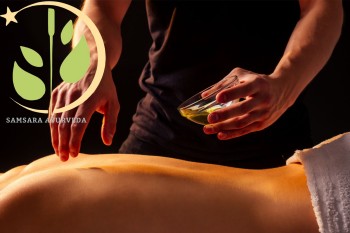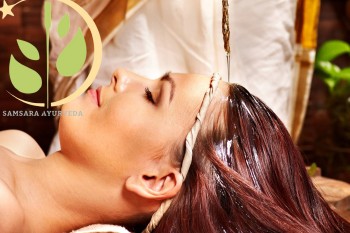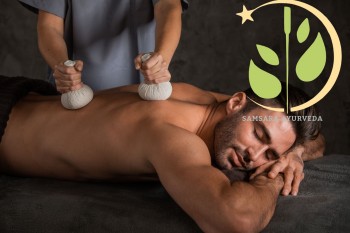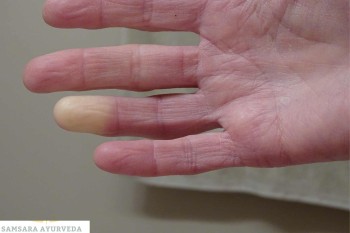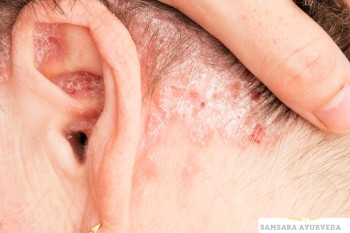Abhyanga is an Ayurvedic treatment that entails the application of heated oil to the entire body. Instead of serving as a standalone treatment, abhyanga functions as a poorvakarma, or preparatory phase, for panchakarma therapies. Warm medicated oil is employed to massage the entire body. Each condition may necessitate a distinct oil. It is performed by a trained masseuse under the supervision of an Ayurvedic professional. The patient is positioned on a paathi or bed, and the entire body is massaged after thalam is applied to the vertex. The procedure is conducted with a consistent level of pressure. Additionally, the oil is constantly heated by means of a water bath. The patient's condition may necessitate adjustments to the pressure. It is ensured that each and every point of the body is anointed with oil following the treatment. In some instances, stanika abhyanga or localized abhyanga is also performed.Typically, abhyanga is followed by Svedana or thermal therapy. However, in other circumstances, this is followed by a heated water bath. Days of treatment are typically recommended subsequent to an evaluation of the patient's condition.
Advantages
Ayurveda posits that the daily practice of abhyanga can slow the aging process, alleviate physical exertion, and balance vata. It promotes excellent sleep, increases longevity, nourishes the body, and is beneficial for vision.
It also contributes to one's physical and epidermis health.
Abhyanga can be performed in the home with a particular focus on the cranium, foot, and behind the ear. Indigestion is contraindicated for this massage.
Similar to the manner in which a pitcher or cart wheel becomes smooth and efficient through oiling, our body can regain its vigor through abhyanga.

